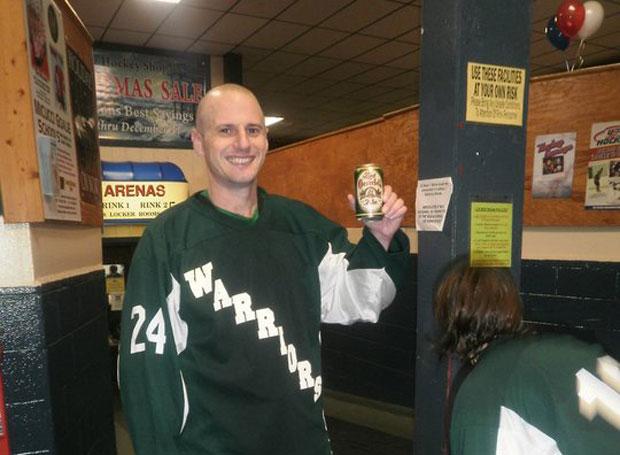Buffalo Farewell: Loving a Difficult Place
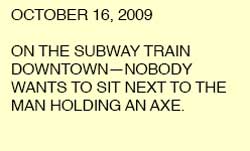
Let me say this first: I love Buffalo.
It didn’t happen quickly and it hasn’t been easy, but like so many things in life, that love is sweeter and deeper for having been so difficult to attain. Nor is this a rose-colored glasses kind of “Buffalove”—after seven long years in this town, seven years during which I attended University at Buffalo and finished my PhD in English Literature, seven years that saw the region endure a devastating recession and ushered me from my thirties into (quite frankly) middle age—I understand and appreciate a great deal of what makes the town so quirky, weird, inspiring, and frustrating, by turns and sometimes all at once.
I moved here with my wife Tina in summer of 2008. We’d met in Texas, in a little town called San Marcos just south of Austin, where Tina had moved from Slovenia to earn her MA in English while I’d come from San Francisco to get an MFA in poetry. Having decided to go for a PhD (a story all its own, not one I’ll go into here), there were several options, including a school in California and one in Texas that would have allowed Tina to continue working at our alma mater, Texas State. I visited all of them in quick succession. The idyllic campus of the California school, complete with trails through the redwoods and sweeping ocean views, couldn’t have been a greater contrast with the UB north campus, which I visited the very next week. It was the first day of spring, and a blizzard blew down over the bleak brutalist landscape outside Clemens Hall. I stood staring at it in shock from a fifth-story window while chatting on the phone with Tina. Having lived for many years in San Francisco, however, I had no appetite for the massive expense of living on the California coast, especially on a student stipend. Choosing Texas was tempting; we had good friends, Austin was booming, and there was a certain logic in just staying put.
But something about this aging Rust Belt city resonated with me. I’d grown up in the suburbs of Detroit, so many things about Buffalo—the weather, the Midwestern vibe, the obsession with local sports teams, the nagging inferiority complex mingled with a stubborn local pride—echoed my experience growing up in Michigan and graduating from Wayne State.

The first winter was tough. It had been many years since I left Michigan and Tina’s only experience of American weather was Texas. We drove an aging Nissan Altima that refused to embrace the Buffalo cold. My memory of that winter from Thanksgiving onwards is one long blur of shoveling snow, trying to start the car, shoveling more snow, driving through snowstorms, asking friends and neighbors for a jump, and shoveling more snow. Life was worse for my wife; at least I had a reason to be here, while she got by adjuncting at UB and working part time at Talking Leaves Books down the street from our house. She was lucky to have scored those jobs, but they paid very little. Meanwhile, I threw myself into the PhD program, but even that offered little solace.
The school and the program were facing difficult times. There had been clouds on the horizon right from the start—scandal-plagued Eliot Spitzer had resigned as governor just before I visited campus in spring, while the Poetics Program had recently suffered a “failed” hire of a mid-career poet who might have breathed new life into the department. Little did I know at the time that Spitzer’s fall would throw state politics (and university funding) into a prolonged period of uncertainty, or that the department would not get another crack at hiring a new poet for many years, with some faculty members openly suggesting UB’s storied Poetics Program should simply be phased out. Even these problems paled in comparison with the advent of the “Great Recession,” which tossed all of higher education into a major fiscal crisis. The language of crisis dominated department meetings during my first several years at UB. Budget cuts were introduced every semester; there was a depressed and depressing pall cast over the entire campus. Nor was our home life much comfort. It turned out we’d moved in underneath an amateur conga drum club. Almost any time of day or night, the window-rattling, nerve-wrecking BLAT-DE-BLAT-BLAT sound would reverberate through the house, lasting for hours and making conversation and concentration impossible. The nadir came on Christmas, when we were treated to an impromptu concert just as we sat down to relax on the couch. It was impossible not to cast our gaze on what might have been, especially in the depths of that first winter, when friends posted photos of the nice southern weather and Texas seemed impervious to the economic meltdown.
In short, if you had offered us a chance to hit the reset button on moving to Buffalo, we would’ve jumped at it.
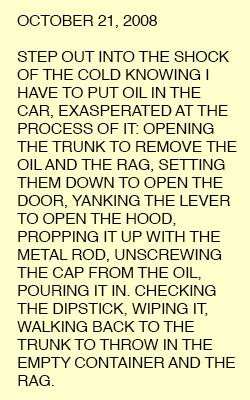
Thankfully, that nadir was also a turning point. We decided to move, and our landlords let us out of our lease with no problem. Tina applied to enter the PhD program, as we reasoned she could earn more money on a TA stipend than her part-time jobs, and have something tangible to work towards as well. We also—at Tina’s insistence—bit the bullet, dipped into our savings, and put a down payment on a new car. By spring, we were living in a nice, conga-free flat in Parkside, Tina was preparing to go back to school in the fall, and a new, red Toyota Yaris was parked in our driveway. And looking back at that first year, I have to admit there were many positive developments. Despite the budget crisis, the Poetics Program and English Department still managed to support some of my projects, including my journal kadar koli and the Buffalo Poets Theater, which ambitiously produced three separate slates of poets’ plays at the Burchfield Penney in Spring of 2009 (and continued at various locations through 2013). We began holding readings at our new house. The community beyond the graduate program seemed welcoming, even overjoyed to have us here. We were beginning to make friends and get into some kind of groove.
One sunny day in May 2009, out running around Hoyt Lake, I encountered an event that told me a lot about Buffalo. I noticed a fleet of limousines and news trucks behind the Albright Knox, with cameras, a marching band, and various dignitaries ranged on the marble steps. Pausing at this wonder, I realized it was a “Welcome to Buffalo” ceremony for star wide receiver Terrell Owens, who’d just been signed by the Bills. I watched as Mayor Byron Brown handed him the key to the city. As hard as this was to believe—Owens by 2009 was a well-traveled player with a lot of baggage, some years removed from peak stardom—I recognized the sentiment. Growing up, I had witnessed Detroit display such fawning desperation many times. Not content to lavish an athlete with money, Detroit also yearned for a complicated sort of approval in the transaction. For every athlete who willingly makes a city like Detroit or Buffalo home, it seems, there is an implicit need for love in return for riches; we want to hear that Joe Smith, star QB or center or goalie, finds this to be the best place he’s ever lived, full of the most wonderful people. New York and L.A. and Chicago don’t wear their hearts quite so far out on their sleeves. Owens, of course, spent one forgettable season in Buffalo before moving on.
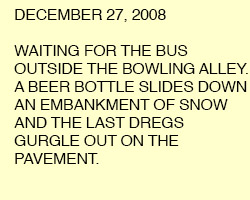
There’s something of the above-mentioned sentiment in my writing this screed, letter, recollection, testament—whatever it is—to Buffalo now. It would never have occurred to me to write something like this about Austin. (In fact, you are legally required to begin proclaiming how much you love Austin the moment you move there, and to congratulate yourself for having made the move.) San Francisco, with its sky-high rents and rampant techie gentrification, is beyond defending—but “The City” doesn’t care. Buffalo cares and cares deeply. One way or another, it gets under your skin. I know colleagues from grad school who’ve genuinely had it rough here, falling victim to everything from exploitative landlords to car theft to actual assault. Others, however, just never seem to cotton to the place, and I find myself feeling defensive, even protective, of Buffalo as they post bitter complaints about the city and pine for the day when they can knock its dust off their shoes. In fact, much of my PhD cohort did just that long ago, choosing to abscond to other cities as soon as they became “ABD” (“all but dissertation”) and were no longer required to physically be here for school. More recently, some students have decided not to live in Buffalo at all, preferring to commute from distant locales. This has had the effect of making the grad school community even more transitory and fragmented than it otherwise would be. While Tina and I grew more and more focused on our academic projects over the years, we were never inclined to leave, and in fact we began to discover more and more reasons to stay.
Mostly, we wanted to stay because of the wonderful friends we made here. These friends consisted of both grad-school buddies and local folks we’d gotten to know in a wide variety of contexts. Tina met a lot of people when she worked at Talking Leaves, and it was a rare stroll through Elmwood Village when someone didn’t recognize her and stop to chat. I got back to playing hockey again for the first time since college in a “beer league,” where my teams perpetually pushed the bottom of the standings but always had a great time. We embraced the cool things to do in Buffalo as it rebounded from the recession, finding favorite spots like the old Sterling Tavern on Hertel Avenue, going to movies at North Park Theater, catching free concerts at Canalside and Bidwell Park, visiting the Bidwell Farmers’ Market, the summer festivals, and so on. Everyone has their own list of things like this, and there’s no need to enumerate them. The point is that over time, and with our friends, we found ways to appreciate all the quirky, regional, unique, sometimes goofy but almost always fun ways Buffalo finds to express and celebrate itself.
I even learned how to “lean into” winter and enjoy it as much as possible. Winter sports—like hockey and skiing—helped with that, and the new car and a set of decent all-weather tires removed a lot of the anxiety that went with driving the Thruway to north campus. But I also simply stopped paying so much attention to weather reports. I got a good pair of weatherproof boots, mittens, and other gear, such as the notorious “ninja mask” I wore on cold-weather runs that protected my head, mouth, and ears. I stopped complaining (and paying attention to complaints) about the weather on social media, stopped posting forecasts with a frowny-faced emoticon next to them, stopped feeling pangs of jealousy at friends’ “weather brags” from more temperate places. Instead, I embraced the raw challenge of Buffalo’s weather, which began to feel like a living, sentient being, a character in a grim play that one had to endure with a sense of relief and, ultimately, solidarity with all those others who’d toughed it out. Of course, despite the particularly brutal winters we’ve all endured of late, a glorious summer is always the reward. And with greater gusto, I learned to savor those, too.
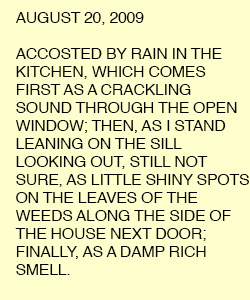
Some Buffalo memories, in no particular order:
So many memories of running. Running through a downpour in Delaware Park, the wind pushing the rain into horizontal sheets that sliced across my face and eyes, soaking my clothes and shoes. Running in deepest winter, when I had to watch out for patches of ice and could see my breath and also the shadow of my breath on the ground. Running past Hoyt Lake when kids had cleared off a circle to play pond hockey, seeing them whirl around passing and shooting the puck. Running in spring when the hawks were migrating, seeing whole families of hawks circling high above Forest Lawn Cemetery, Delaware Park, and up around Starin Avenue. Running through Kenmore in the brutal summer humidity and stopping at Sophia’s and ask for a large glass of ice water to cool myself down. Running on Grand Island and having to duck into the bushes for a quick, illicit bathroom break. Running up to the track at Buffalo State, which was usually open but sometimes not, forcing me to hop the short fence to complete my workout…
Attending the World Junior Hockey Championship at HSBC Arena with a local pal who expertly razzed the Canadian fans waiting outside to see their team play Sweden, chanting slogans at them and watching their maple-leaf painted faces simmer in polite rage…
Going to rehearsals, and then hanging out with the cast and crew after our most ambitious Poets Theater production: Gertrude Stein’s Doctor Faustus Lights the Lights, which ran for two shows at Alleyway Theater on Main Street…
A Thanksgiving memory: reluctantly waking before dawn and heading up Delaware for the start of the Turkey Trot. Running downtown, seeing the boys who’d started off at a sprint now spent and staggering as we neared Forest Lawn, and the folks wearing costumes, and the people out cheering the runners on. Finding friends at the finish line and gulping down free beer in the Convention Center at 10am, before going home and gearing up for Thanksgiving dinner…
Sitting with my ass literally freezing on a wet, broken-down chairlift at Buffalo Ski Club one cold, snowy evening with a friend, wondering if we’d ever get off the lift as others took matters into their own hands and jumped into snow banks…
Sitting in Cafe Aroma and inevitably running into half a dozen friends and colleagues as I worked and sipped a beer or some coffee at a table, my laptop and stack of books before me…
Handing down Halloween treats to the kids off our rickety porch, the kids (dressed as demons and monsters and superheroes) prodded to thank me by their parents, watching them hurry off to the next house and stomping around to keep warm as I waited for the next group…
Guzzling a can of Molson Canadian in the musty, filthy locker room after a late-night hockey game, going over the goals and penalties and bad calls and missed chances with teammates who had to get up for work in a few hours…
Buffalo is a difficult place to love, but a hard place to leave. At least it is for me. To put down roots here—to buy a house, open a business, be an artist, put on events – is a gamble of sorts. That’s true anywhere, of course, but the nature of the gamble is different here. There seems to be both more and less at stake. “Making it” in New York or Los Angeles might mean fame, a national profile, the opportunity to pierce the consciousness of whatever scene one’s a part of in a broader way. Conversely, if you fail, nobody cares. It’s easier to succeed on a local level in Buffalo, thanks to low rents, the bounty of spaces and storefronts, and a scene that’s eager to welcome something different without the cut-throat critiques and competition one encounters elsewhere. In that sense the stakes are lower. They’re higher, though, in that such cultural enterprises often fill a unique niche in Buffalo. Being a literary sort, my personal list of these is slanted in that direction; I’d count Rust Belt Books, the Buffalo Small Press Book Fair, the Western New York Book Arts Center, Just Buffalo Literary Center, Hallwalls Contemporary Arts Center, and the people who drive and support these venues as utterly unique and irreplaceable components of the local scene. They are both products and creators of the cultural-economic conditions in Buffalo, and people care about them so much precisely because if they were to disappear, nothing comparable would take their place.
And people care—they really, really seem to care. To venture something in Buffalo is to enter a complex conversation with the town, to contribute to its uneasy relationship with its image of itself, to impact its fitful and problematic “resurgence.” Buffalo has been reputed to be “rising” ever since we moved here in 2008, but only within the past year or so—as Gov. Cuomo pours money into Western New York, real estate prices boom, and the economy (or at least the stock market) stabilizes—has this felt like more than hopeful rhetoric. But as it trumpets each success story—new restaurants and food trucks, the influx of twenty-something “creatives,” the “public-private partnerships” pursued by the university via its increasing presence downtown—Buffalo must also grapple with its broken school system, its horrifying disparities in wealth, its crime, and the ongoing gentrification that threatens to exacerbate all of these issues.
Other cities have already capitulated to or made peace with these forces—they hit you with them immediately, and you love such cities or leave them. Buffalo is never that easy. It’s tough to get to know, tougher to love, and with every hug there’s a stiff jab in the ribs to remind you how tough it is. But I’ll say it again: I’ve come to love Buffalo anyway.
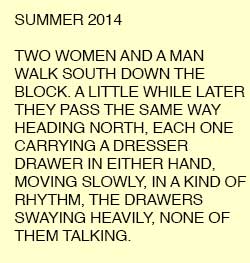
*Poems mostly excerpted from Field Work (David Hadbawnik, Blazevox, 2012).
David Hadbawnik is a poet who recently completed his PhD in medieval studies at University at Buffalo. He’s not a fan of the Sabres or Bills, but wishes them well. He recently saw a cloud over Buffalo in the shape of the Stanley Cup, and believes the city will win one within five years. His translation of the Aeneid (Books 1-6) was just published by Shearsman Books. His next move is Kuwait City, where he’ll be an assistant professor of English at the American University of Kuwait.

